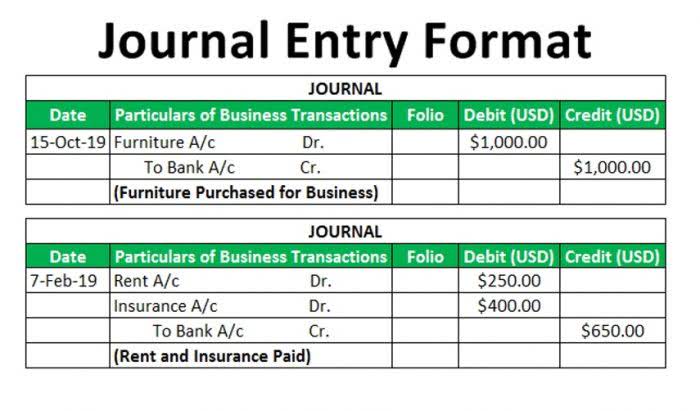What You Need to Know About Controller Salaries and Jobs

They are also the person to understand why inaccuracies may exist, what changes must be put in place, and how those changes will impact future reports. Last, controllers often transition into the role of assistant controller before making the jump to a full controller role. An assistant controller is simply a more junior position that may perform many of the same tasks as a controller.
No two systems of internal controls are identical, but many core philosophies regarding financial integrity and accounting practices have become standard management practices. While they can be expensive, properly implemented internal controls can help streamline operations and increase operational efficiency, in addition to preventing fraud. Internal audits play a critical role in a company’s operations and corporate governance, now that the Sarbanes-Oxley Act of 2002 has made managers legally responsible for the accuracy of its financial statements. A controller’s job focused more on the oversight of accounting infrastructure.
Controller
Financial controllers are often the head financial position in charge of overseeing that historical, actual financial transactions are being reported properly. This may range across all finances departments including accounts payable, purchasing, vendor management, treasury, financial reporting, and financial planning. A controller is an individual who has responsibility for all accounting-related activities, including high-level accounting, managerial accounting, and finance activities, within a company. The duties of a controller include assisting with the preparation of the operating budgets, overseeing financial reporting and performing essential duties relating to payroll. The controller position is accountable for the accounting operations of the company.
After building managerial expertise in the field, experienced accountants can qualify for assistant controller roles. Those assisting could have have titles such as assistant controller, accounting manager, cost accounting manager, tax manager, accounts payable manager, credit manager, payroll manager, and so on. Additionally, if an accountant wishes to advance to a senior-level accounting position, they must obtain their CPA credentials. There are other advanced certifications for accountants who want to advance to higher-level accounting roles, such as the certified management accountant (CMA) and the chartered financial analyst (CFA) credentials. As mentioned earlier, even though a controller oversees accounting operations, the work an accountant does should not be viewed as less valuable. Still, as some accountants gain experience and may pursue senior-level accounting positions, others choose to become controllers.
How confident are you in your long term financial plan?
In this article, we’ll examine these professionals’ responsibilities and the skills required to excel in their profession. We’ll also explore earning potential, job outlook and prerequisites for this role. The controller for a large company might report to the chief financial officer (CFO), while the controller for a small company may be reporting directly to the president or owner. A controller is important to finance as they control the risk and reporting aspect of the company. A controller is the point person for making sure the financial reporting is done correctly.
- As CPAs, they are now qualified to understand how to complete all bookkeeping tasks and oversee other bookkeepers.
- On the other hand, as mentioned earlier, Controllers often perform roles that overlap that of accountants.
- Smaller companies demand more versatility of the controller, while larger companies are able to disperse the following job responsibilities across other employees including the chief financial officer and treasurer.
- Some of those decisions included whether to continue research and development projects, restructure a business unit, or continue developing a new product.
- Regardless of the policies and procedures established by an organization, internal controls can only provide reasonable assurance that a company’s financial information is correct.
Still, a controller’s high salary and increased responsibility may make the long haul worth it for ambitious accounting professionals. At larger companies, the controller usually reports to the chief financial officer (CFO). These professionals need a deep understanding of accounting as it relates to their industry and company profile. For example, a controller working for a healthcare organization must understand the healthcare industry’s specific tax concerns. Similarly, an employer that conducts business in several countries might look for a controller with experience working for multinational companies.
What is a Controller in Accounting?
Controllers also oversee accounting staff and play a more active part in their companies’ financial planning. In general, CFOs often take a greater presence in external-facing tasks including mergers, acquisitions, or involvement with investors. Meanwhile, financial controllers own more of the internal reporting process including implementing internal controls, managing the month-end close schedule, and ensuring financial accuracy. A comptroller is a person in the business https://www.bookstime.com/ who oversees accounting and the implementation and monitoring of internal controls, independently from the chief financial officer in some countries. In the United States, the United Kingdom, Australia, New Zealand, Israel and Canada, a comptroller or financial comptroller is a senior position, reporting to the CFO in companies that have one. In business management, the comptroller is closer to a chief audit executive, holding a senior role in internal audit functions.
Candidates for controller jobs should have a minimum of a bachelor’s degree in accounting or business, but preferably an MBA. They should usually have at least seven years of experience in the accounting field, and some public accounting experience cfo vs controller is often required. If you believe that you have what it takes to become a controller, the first step is to get educated. You must be analytic, precise and very organized to break out of a staff accountant role and into a controller role.
